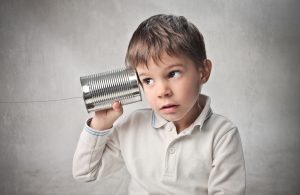Why Dialogue?
WHY DIALOGUE?
Learning to Listen through the Art of Dialogue
by Dorothea Schönwiese
In our workshop “Listen and Lead” we will work with – besides music – the principle of dialogue as a means to enhance our listening skills and thus our communication and leadership skills.![]()
Dialogue is a rewarding and at the same time efficient form of communication for all kinds of communities and organizations – such as companies, departments, families, NGO’s, schools etc. – which is very different to the way we are generally used to talking to each other.
It is particularly useful in corporate environments wherever innovation and change are desired. In crises and when things get too complex, dialogue can be of great help to untangle things, to kick off processes that have stagnated, to create connection, trust, depth and stability.
We are used to discussing, debating, getting our point across, asserting our positions.
Especially as leaders we tend to believe that our job is mainly to convince others of our opinions and to follow through with our concepts as quickly as possible.
– What if we suggested that an entirely different, even opposite way of communicating is actually both more productive and more satisfying?
– What if we experimented with a form of talking to each other which includes all opinions, which invites all differences and uses all potentials and resources that are present in the very moment?
![]()

In dialogue, we want to listen to other points of view that are new to us and to absorb them, so that ideally something new can develop. If we strive for innovation dialogue is the ideal means to our end.
In our workshop “Listen and Lead” we will get you acquainted with this form of communicating and we will practice it in a way which will enable you to implement it in your work and private lives by introducing to you some of the core skills of modern dialogue, such as
* Suspending assumptions – While someone else is speaking we keep our thoughts to ourselves and don’t give in to the first impulse of replying or interrupting.
* Empathic listening – Usually we tend to consider all kinds of things while listening to another person speaking: “What do I think of this? What will I say in response?”… When we listen empathically, we resist this urge and listen in a way that tries to truly understand the other person, almost as if we slipped into their skin for a while.
* Speaking from the heart – We speak of what is really important and meaningful to us in this very moment. We avoid highly intellectualized language which primarily serves to impress, to convince or to demonstrate superiority.
* A learning attitude – We enter a conversation with the goal to learn from others, to broaden our horizons through different points of view. The knowledge, wisdom and experience of others can enrich our lives enormously!
* True respect – We accept others as they are and try to see them from their perspective. We recognize their views as equally significant and justified as our own.
* Slowing down – In dialogue we do not aim for quick results. Everyone has their own pace. Silence is welcome. Paradoxically and surprisingly, this “extended space” of slowing down very often produces much faster results than lengthy debates!
Dialogue is about a process, not a product. We want to think and explore together and not to present what we have already thought: This is “thinking” instead of “thoughts”. Differences may, indeed should, remain side by side and are not standardized in order to obtain quick output. Diverging attitudes are valued as enrichment.
By applying these ideas to our conversations we will find that our relationships become deeper and more trustful, that our leadership improves and that there is no problem that can’t be tackled!
We look forward to engaging in this exciting new way of communicating with you!
